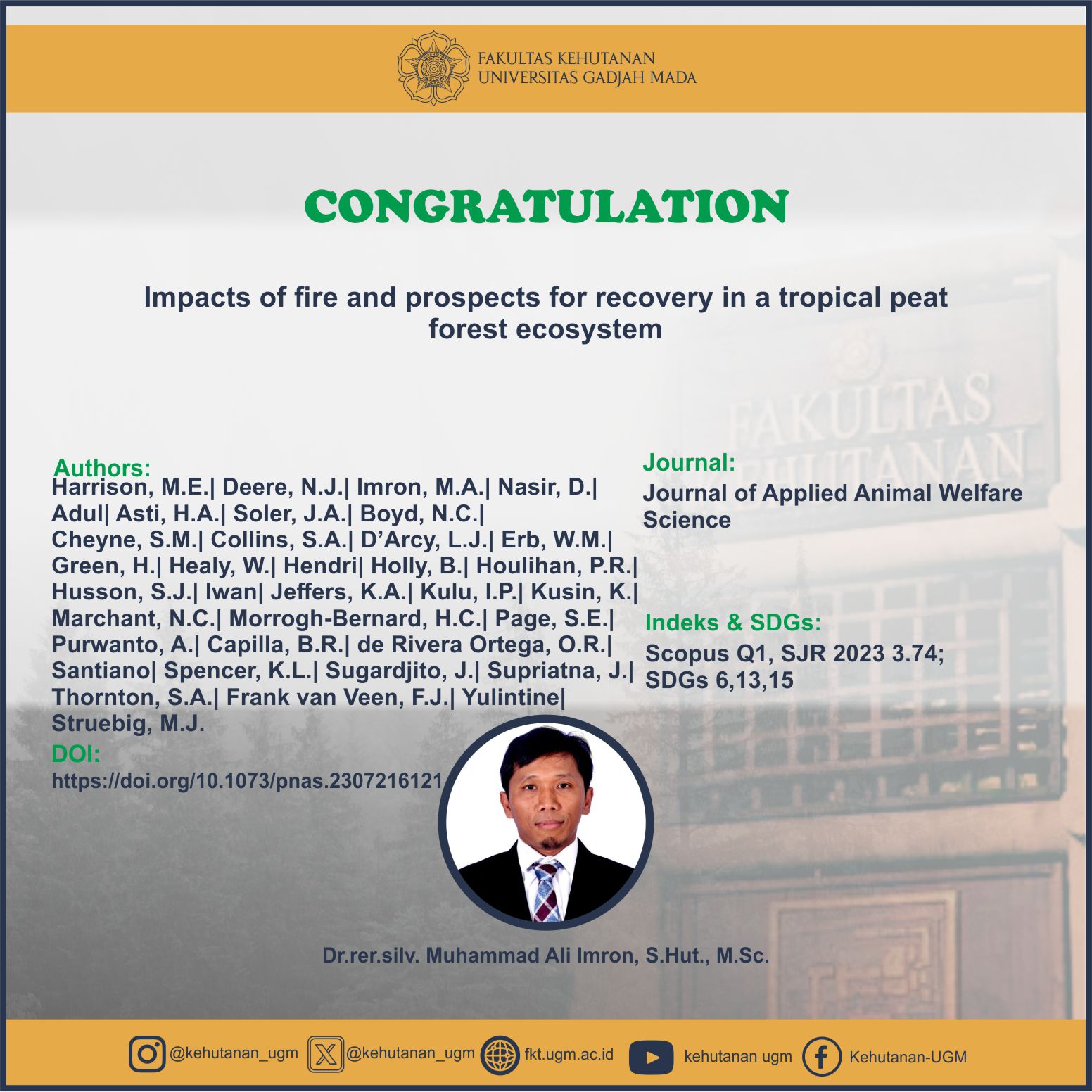
Abstract
Uncontrolled fires place considerable burdens on forest ecosystems, compromising ourability to meet conservation and restoration goals. A poor understanding of the impactsof fire on ecosystems and their biodiversity exacerbates this challenge, particularly intropical regions where few studies have applied consistent analytical techniques to exam-ine a broad range of ecological impacts over multiyear time frames. We compiled 16 yof data on ecosystem properties (17 variables) and biodiversity (21 variables) from atropical peatland in Indonesia to assess fire impacts and infer the potential for recovery.Burned forest experienced altered structural and microclimatic conditions, resulting ina proliferation of nonforest vegetation and erosion of forest ecosystem properties andbiodiversity. Compared to unburned forest, habitat structure, tree density, and canopycover deteriorated by 58 to 98%, while declines in species diversity and abundance weremost pronounced for trees, damselflies, and butterflies, particularly for forest specialistspecies. Tracking ecosystem property and biodiversity datasets over time revealed mostto be sensitive to recurrent high-intensity fires within the wider landscape. These mega-fires immediately compromised water quality and tree reproductive phenology, crashingcommercially valuable fish populations within 3 mo and driving a gradual decline inthreatened vertebrates over 9 mo. Burned forest remained structurally compromisedlong after a burn event, but vegetation showed some signs of recovery over a 12-y period.Our findings demonstrate that, if left uncontrolled, fire may be a pervasive threat to theecological functioning of tropical forests, underscoring the importance of fire preventionand long-term restoration efforts, as exemplified in Indonesia.
SDGs:
SDG 6: Clean Water and Sanitation
SDG 13: Climate Action
SDG 15: Life on Land
Link Dokumen:
Download
